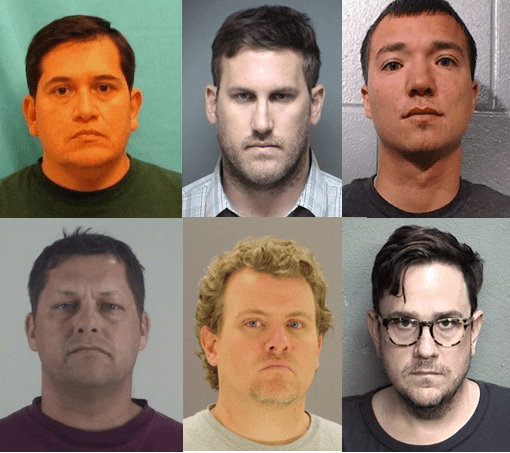The 2014-15 academic year marks the 7th year in a row that Texas teacher sexual misconduct towards students cases have increased. On Friday, the Texas Education Agency (TEA) reported that they opened 188 cases of educator accused of these inappropriate relationships during the fiscal year ending August 31.
TEA spokeswoman Debbie Ratcliffe told Breitbart Texas, “There’s not a report or list out of these cases; there is just a number at this point. It is accurate that we opened 188 cases involving inappropriate relationships in the 2014-2015 year, as of August 31.”
According to Texas Education Agency (TEA) data, the reported incidences of educator-teacher improper relationships rose as follows: 2008-09 had 123 cases; 2009-10, 141 cases; 2010-11, 152 cases; 2011-12, 156 cases; 2012-13, 163; 2013-14, 179; and 2014-15, 188. The Austin American-Statesman crunched the numbers reflecting a 53 percent increase in these cases over the past seven years.
Between 2009 and 2014, the number of Texas teacher sexual misconduct cases went up by less than half a percent, according to state data. The Statesman also cited that betwen October 2007 and June 2015, at least 638 teachers in the state lost their licenses after the education agency investigated them for improper teacher-student relationships.
In March, the TEA added 74 alleged cases to the number of cases under review by the agency’s Educator Investigations (EI) unit director. Breitbart Texas reported that sexual misconduct cases jumped by 27 percent reflecting the 141 purported cases during the 2009-10 school year to the 179 cases in 2013-14.
Ratcliffe told Breitbart Texas, “It’s very discouraging to see the number of cases on the rise.”
Family Circle reported how teachers routinely send text messages about everything from exams to projects and homework and students use cell phones to vote in polls, post their academic work online, and go on Facebook to discuss study topics with one another and their instructors. This means, teachers and students can connect anytime and anywhere. “It’s allowing them direct, unsupervised contact beyond the classroom,” commented Doug Phillips, EI unit director. “And that’s a very slippery slope.”
So slippery that experts like Terry Abbott believe one big fix would be to ban all forms of educator and student communications. Abbott, the former U.S. Department of Education chief-of-staff, heads up the Houston-based research firm Drive West Communications. They track incidences of inappropriate teacher-student sexual relationship across the country. The wave of sexual deviance is not limited to Texas. Abbott has called it “epidemic” nationwide.
He found about 35 percent of the educator-student sexual misconduct cases involved social media nationwide in 2014. Breitbart Texas also reported that Abbott cited nearly half of the cases in Texas last year “involved secret social media texting connections between teachers and students.”
San Antonio-based education consultant David Thompson echoed Abbott’s sentiments, pointing out that school districts were looking for more ways to limit social media and after-hours communication. “The vast majority of inappropriate teacher-student relationships now involve cell phones, texting or social media,” added Phillips, who explained to Family Circle that many of these incidents happen because of a misstep, breaking the rules of decorum and propriety. For example, the instructor who sends a late-night text or makes a wisecrack, or the teen who friends her teacher and starts treating him like a confidant by sharing too much.
Breitbart Texas reported repeatedly on the rash of out-of-line relationships this year, including over the summer months when two North Dallas educators were accused of sexual misconduct with the same female teen at the same high school where they taught. Before that, three school district employees from the same Hurst-Euless-Bedford (HEB) school district were charged with sexual misconduct with minors. One of them was a principal, picked up by police for purported solicitation of under-aged boys for oral sex.
Not all cases under investigation are sexual either. Last week, a West Texas teacher accused of being under the influence of alcohol resigned from her Lubbock high school post.
Although TEA investigations show the majority of cases statewide involve male teachers using social media to have explicit conversations with students online, women are not immune from accusations of acts of sexual predation. Breitbart Texas reported on female teachers in Corpus Christi, Irving, and Dallas, looking for love in the most inappropriate of places.
For all the Texas cases reported, many are not. The TEA EI unit found that school districts will interfere with criminal investigations or conduct their own investigations. These are done in a way that is calculated for a quick resolution to reduce financial impact on the school and to protect the reputation of the district, said the Statesman. When the TEA probes these cases, they often find that school districts resist by redacting names of key witnesses and, sometimes, entire pages of information from a teacher’s personnel records, Phillips explained.
Nor does it help when educators apply for new positions on different campuses, school districts do not always review teacher personnel files, and those files do not always contact associated information about faculty and staff improprieties, KXAN-TV (ABC/Austin) uncovered.
Still, Ratcliffe emphasized, “Most educators are acting in a moral and ethical way every single day. This small number of bad actors not only hurt children, which is unforgiveable, but are hurting the teaching profession as well. We are vigorously prosecuting these cases of inappropriate relationships.”
Follow Merrill Hope on Twitter @OutOfTheBoxMom.

COMMENTS
Please let us know if you're having issues with commenting.